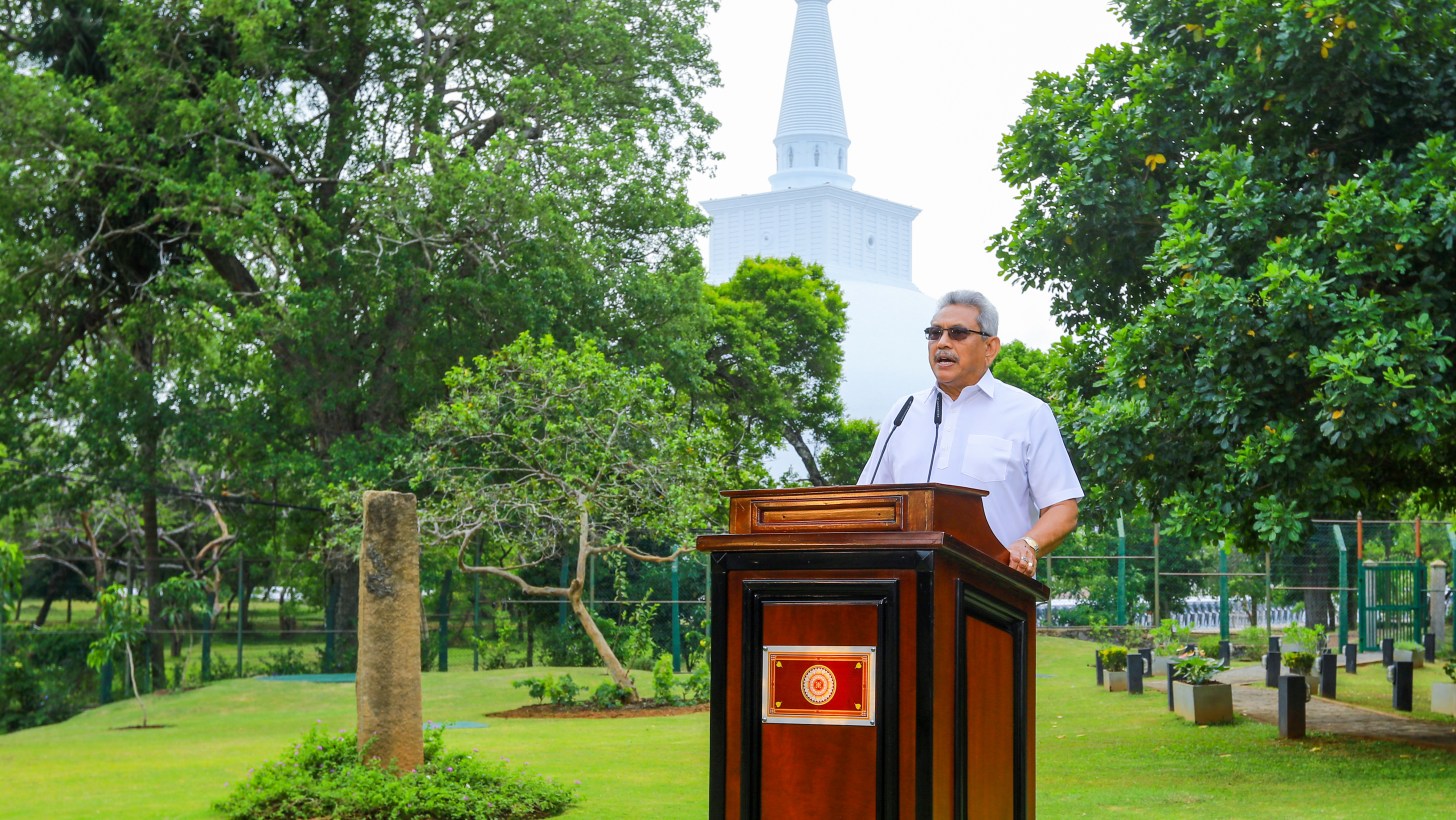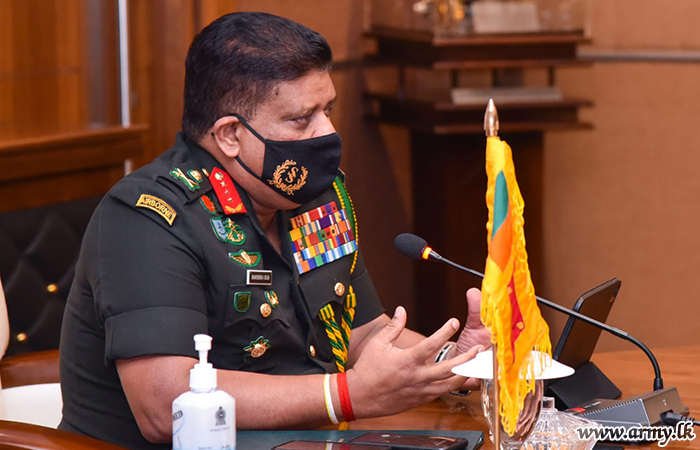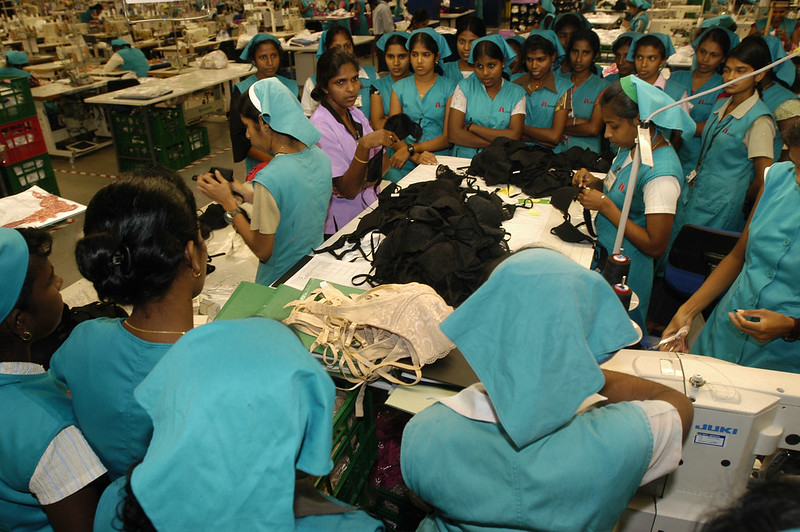A Brief Colonial History Of Ceylon(SriLanka)
Sri Lanka: One Island Two Nations
A Brief Colonial History Of Ceylon(SriLanka)
Sri Lanka: One Island Two Nations
(Full Story)
Search This Blog
Back to 500BC.
==========================
Thiranjala Weerasinghe sj.- One Island Two Nations
?????????????????????????????????????????????????Tuesday, June 29, 2021
‘This government will not allow anyone to interfere in our internal affairs’ – Gotabaya Rajapaksa

28 June 2021
Addressing Sri Lankan Parliament, President Rajapaksa admonished the record of the previous administration claiming that they left the economic and security apparatus of Sri Lanka in ruins whilst, “the terrorism, which we ended in 2009, had re-emerged in a more dangerous form”.
“We went through a period where making comments about our character, our culture and nationality was a cause for insult and ridicule. We have changed that” Rajapaksa claimed.
Rajapaksa’s address follows damning human rights reports which have criticised the countries continued use of the Prevention of Terrorism Act; militarized and discriminatory response to the pandemic; and ongoing reports of torture and military impunity.
Earlier this month European Parliament adopted a new resolution on Sri Lanka expressing “serious concern at the rapid deterioration of human rights” on the island and urging the Council to consider targeted sanctions against senior Sri Lanka officials accused of war crimes as well as a repeal of the GSP+ arrangement.
National Security
![]()
Addressing concerns over national security, Rajapaksa claimed that Sri Lankans were “terrified of religious extremism” and that the Easter Sunday attacks had led people to realise that “the security apparatus of our country had been greatly weakened”.
Sri Lanka’s own Parliamentary Select Committee (PSC) report has queried why the attacks were able to take place despite advance warnings. In their findings, they note that Sri Lanka’s security forces may have allowed the bombings to proceed in order to “create chaos and instil fear” ahead of the presidential elections that took place in 2019. The report highlights that Sri Lanka’s intelligence officials had known the names of five of the 6 suicide bombers but failed to act to prevent the atrocities.
The report said that “further investigations will be needed to understand whether those with vested interests did not act on intelligence so as to create chaos and instil fear and uncertainty in the country in the lead up to the Presidential Election”.
Several Sri Lankan Parliamentarians have claimed that members of National Thawheed Jammath (NTJ) who were deemed responsible for the attacks were being paid by Sri Lankan intelligence and had established links with Gotabaya Rajapaksa. An office in Colombo was claimed to be given to the now-banned group by Gotabaya.
Read more here: Remembering the blasts – 2 years on from the Easter Sunday attack
Since coming to office, Rajapaksa has escalated the military occupation of the North-East which had been ongoing throughout the previous administration. The Oakland Institute reports that despite the government recognising that the LTTE poses no threat, there is approximately one soldier for every six civilians in the North-East. The intended purpose is to keep “the population in the North-East under constant repression and intimidation”.
Rajapaksa further claimed a victory over “the underworld” and “drug menace”. This follows a damning statement by the UN High Commissioner for Human Rights, Michelle Bachelet, which noted the expansion of Sri Lanka’s draconian Prevention of Terrorism Act and “a continuing series of deaths in police custody”. She has called for all of these deaths to be promptly and independently investigated.
War Crimes investigations
![]()
During his speech, Rajapaksa lashed out at the international community claiming that “this government will not allow anyone to interfere in the internal affairs of our country”.
This follows the passage of the UNHCR resolution which mandates the collection of evidence for use in a possible future war crimes tribunal. The resolution further notes the inability of Sri Lanka to deliver on issues of accountability and how this has furthered a cycle of violence that continues to plague Sri Lanka.
Whilst Rajapaksa claimed in his speech to “have always respected the rule of law”, he attacked the previous administration for allegedly politicised appointments”. Rajapaksa has been repeatedly accused of undermining the rule of law through not only the passage of the 20th amendment but also the Commission of Inquiry into “Political Victimisation”.
The commission has called on Sri Lankan parliament to exonerate government and military officials implicated in human rights abuses and to prosecute those pursuing investigations against them.
High profile cases include the 2008 abduction and torture of a journalist, Keith Noyahr; the 2009 murder of a newspaper editor, Lasantha Wickrematunge; the 2010 disappearance of a journalist, Prageeth Ekneligoda, in which a criminal trial is proceeding; and the 2012 Welikada Prison massacre, in which security force personnel are currently facing trial.
Meenakshi Ganguly, South Asia director at Human Rights Watch, described the resolution as a brazen effort by Rajapaksa to “help his family and associates evade Sri Lankan justice”.
She further adds;
The “Rajapaksa’s administration has spared no effort in covering up serious alleged crimes, including those implicating Rajapaksa himself.”
Religious Persecution
![]()
In his statement, Rajapaksa claimed to “have created a peaceful environment in which members of all communities and people belonging to different religions can live with dignity without causing harm to others, while preserving their identities”.
However, this statement comes against growing international concern over increased religious persecution in Sri Lanka, with the Bachelet noting the continued targeted harassment of Tamils and Muslims. The recently passed EU resolution highlights the issue of religious persecution emphasizing the need for the government to “unequivocally condemn hate speech, incitement to violence and discrimination against religions minorities in the country, and to hold to account those who advance such divisions, including within the government and military”.
In his statement, Rajapaksa alleged “our places of worship were forcibly occupied” and that “archaeological sites were destroyed out in the open”. He further spoke of the need to protect Buddhist heritage sites.
Since coming to office, he has established the widely panned all Sinhala Presidential Task Force for “archaeological heritage management”. People for Equality and Relief in Sri Lanka (PEARL) has slammed this Task Force highlighting the use of “archaeology” as a means of colonising Tamil and Muslim majority provinces in the North-East.
Across the traditional Tamil homeland, Buddhist viharas have been erected without the consent of residents whilst Hindu monuments have been destroyed.
Pandemic response

Commenting on the pandemic response, Rajapaksa, noted his outreach to Chinese, Indian and Russian leaders adding that:
“All these efforts were made because I wanted to vaccinate all the people in our country”.
He further stated that:
“At present, the vaccination drive is being carried out successfully in all provinces of the country”.
Whilst Rajapaksa has claimed that the situation is “very satisfactory” his administration’s response has faced sharp criticism from Amnesty International which has highlighted its discriminatory practice and militarized response.
In their report, they note Sri Lanka’s gag order on the health care sector; the prioritisation of those with economic or political privilege at the expense of at-risk groups; the abuse of factory workers and prisoners; as well as the lack of a comprehensive plan to vaccinate the whole population.
Housing

Photo of Tamil residents of Kankesanthurai, Jaffna)
Rajapaksa highlighted that in Sri Lanka, close to “6 million families in the country still do not have a proper residence to live in”.
His statement omitted the military’s continued landgrabs and occupation across the North-East which has continued to imperil the livelihood of Tamil residents. The Oakland Institute reports that in Jaffna 23,000 people continue to wait to be resettled whilst over 1,300 people continue to reside in 22 camps whilst thousands live with their relatives or renting houses.
Human Rights Watch has further criticised the lack of support provided for those displaced noting that families in Sampur in Trincomalee and Jaffna were “more likely to have at least received the resettlement allowance”.
In September 2020, Sri Lanka’s State Minister, Sarath Weerasekara, told parliament that military-occupied land in the North-East will “never” be given back to the people, blaming Tamil politicians with “separatist agendas” as the reason for continued military control of these areas.
Economic recovery

Commenting on the state of the economy, Rajapaksa noted heavy losses in the apparel and tourism industry. An estimated $5 billion lost in revenue in the apparel industry.
Whilst Rajapaksa noted the need for strict social distancing laws, Sri Lanka’s military has faced human rights complaints for the mistreatment of garment factory workers and Rajapaksa had ordered for factories to continue their operation despite the lack of adequate protection.
Rajapaksa commented on the importance of foreign investment and his statement comes as Sri Lanka faces a dire crisis in terms of its finance. According to the World Bank, the pandemic has devastated the country’s economy leading to its worst growth rate on record, contracting 3.6 percent throughout 2020, with a massive 16.4 percent contraction in the second quarter alone.
Read more here: 'Deeper into poverty' - Sri Lanka's economic devastation detailed in World Bank report
Last month Sri Lanka had to seek a $200-million currency swap with Bangladesh due to its continued foreign exchange reserve difficulties. This was the first time that Sri Lanka is borrowing from a SAARC country other than India. They further state that Sri Lanka had approached India last year requesting a $1 billion credit swap as well as a moratorium on debts however, India-Sri Lanka relations have been tense over Colombo’s decision to cancel a valued container terminal project at Colombo Port.
Read Rajapaksa's full statement here.

